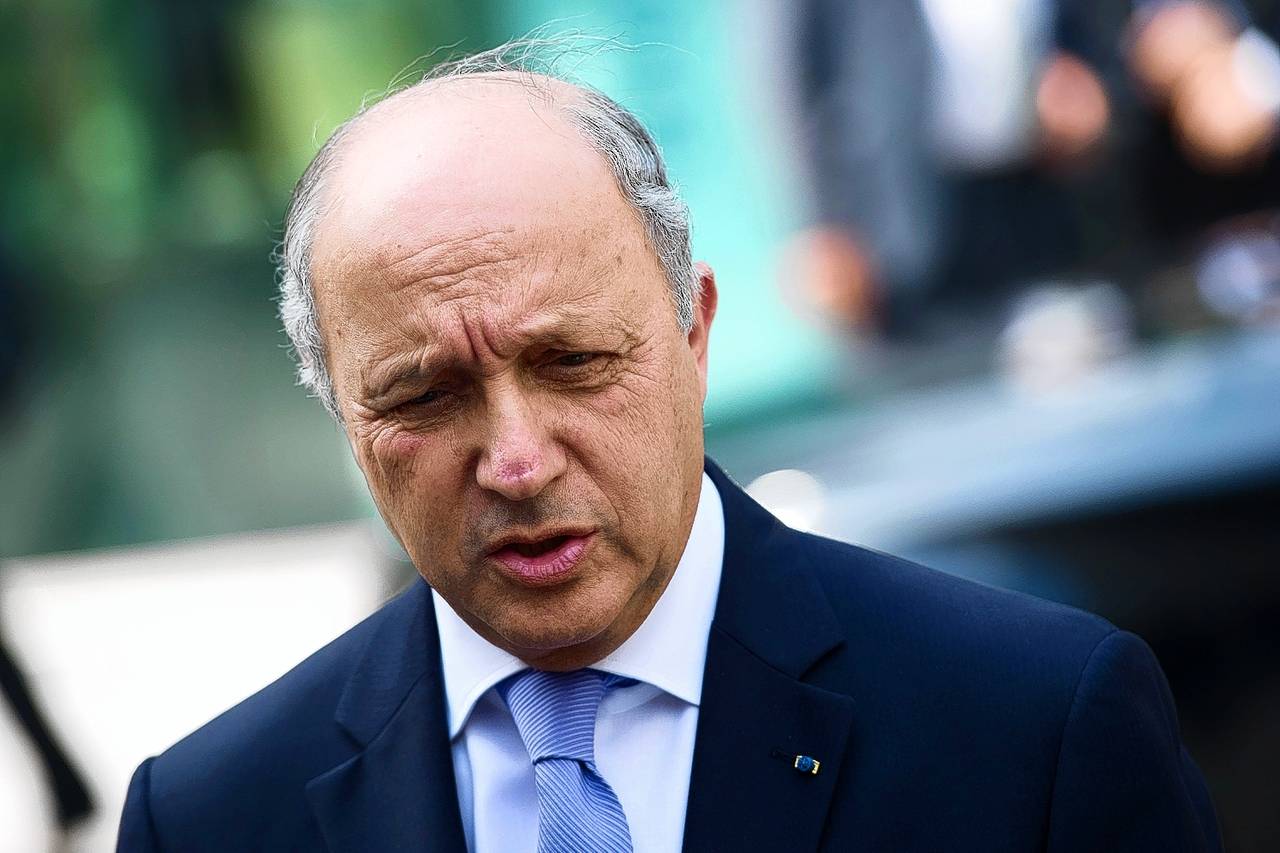
“ Laurent Fabius, the Iron Man Against Iran,” read the headline July 1 on the news magazine Le Point’s account of France’s role in the final international push toward controlling Iran’s atomic-weapons intentions. The subhead continued: “Tougher than the United States, the French foreign minister could once again derail the negotiations on Iranian nukes.”
As things turned out two weeks later, a deal was signed. The tough guys—the French diplomats and defense experts who had once called themselves the “guardians of the temple” of nuclear nonproliferation—had neither kicked butt nor taken names.
Six weeks before the deal, a group of diplomats and experts had told an American expert that they were “extremely unhappy” about the lost cause the deal had become. According to the American’s account, the experts said the core of the permanent agreement France sought to keep a grip on Iran’s nuclear potential had been devastated by an early Obama administration offer to Tehran of a “sunset” arrangement whose strictures would disappear in a little more than a decade.
In the end, France did not choose to lie across the tracks with a gesture of principle. Its admirable voice was still. It ducked and made no waves. The result is a France now confronted by an awkward dilemma.
How do the French get a shot at the big-bucks contracts a sanctions-free Iran will be signing after France’s years of self-portrayal as the last angry and honest man willing to block Iranian nukes? Can they do so without renouncing a principled decade of insisting Iran must be stopped cold?
Just hearing Mr. Fabius exposes this real discomfort. The nuke deal he once sought had to be “robust.” The version the world wound up with instead, he now describes as “sufficiently robust.” Coercive diplomacy has become “constructive firmness.”
When asked by reporters about the impossibly convoluted “snap-back” provisions that supposedly insure the deal’s big-power signatories’ capacity to reimpose sanctions, the foreign minister replied, “I concede it’s subtle.” And what of the several weeks Iran would get to cover up before completion of an investigation on a perceived violation? “Obviously, that’s rather long,” he said.
These careful verbal calibrations were almost artful, until the line broke. It snapped when Mr. Fabius asserted, John Kerry-like, that war is the only alternative to accepting the deal France didn’t derail.
This new line is embarrassing. A French guardian of the temple produced a study in 2009 showing that U.S. military threats worked. The expert argued that Iran invariably backed down in every instance when the U.S. had signaled the possible use of force—without its use. The same year, after Barack Obama’s extended hand replaced America’s clenched fist, Thérèse Delpech, then the strategic director of the French Atomic Energy Commission, said “the notion of a United States military threat has no credibility in Iran.”
In August 2013, the French were ready, alongside America’s bombers, to attack Tehran’s Syrian protectorate. Then President Obama suddenly backed off. President François Hollande described himself as “flabbergasted” by the decision.
In the French view, the raids’ precision and targeting would have scared Iran and Russia, also a supporter of the mullahs and Bashar Assad. Messrs. Hollande and Fabius have both made clear since then that they believe the American fade facilitated Islamic State’s emergence as a permanent factor in the region.
Yet these French backers of firing real rockets at Iranian-related Syrian targets two years ago now ape the Obama administration in saying nonacceptance of the nuclear deal is the tripwire for a full-fledged Middle East war. Disingenuous? In March, French mistrust of the Obama administration’s yes-to-everything negotiating approach toward Tehran was such that Mr. Fabius privately informed parliamentarians “the United States is ready to sign anything with Iran,” according to a French news report.
While Le Point’s Iron Man Against Iran was preparing for the so-called final showdown in Vienna this month, another French newspaper was disclosing the name of a foreign-ministry negotiator described as telling French businessmen in May that an agreement was at hand—and to “hurry up into Iran because your competitors are already there.”
Now Mr. Fabius is heeding that same advice, heading to Tehran on Wednesday. He is 10 days behind Sigmar Gabriel, Germany’s vice chancellor and leader of the Social Democratic Party (SPD), whose visit was remarkably instructive.
Mr. Gabriel called Iran “a friend.” The reaction in Germany, a nearly passive player during the years of negotiations, ranged from critical to revulsed with distress that German commercial interests appeared as the vice chancellor’s single concern.
Volker Beck, a parliamentary policy spokesman for the Greens, the party which could replace the SPD in a future Angela Merkel-led coalition, said Mr. Gabriel had feigned normalized relations between the two countries. “With its position on Israel and its human rights situation,” Mr. Beck exclaimed, “this Iranian regime cannot be Germany’s friend or strategic partner.”
President Hollande and Iran’s President Hassan Rouhani have meanwhile exchanged what the Elysée Palace described as telephoned “congratulations” on the nuclear deal. In Tehran, Mr. Fabius is a certain bet not to echo the German legislator’s judgment—or to represent France’s vanished frankness.
Mr. Vinocur is former executive editor of the International Herald Tribune.






